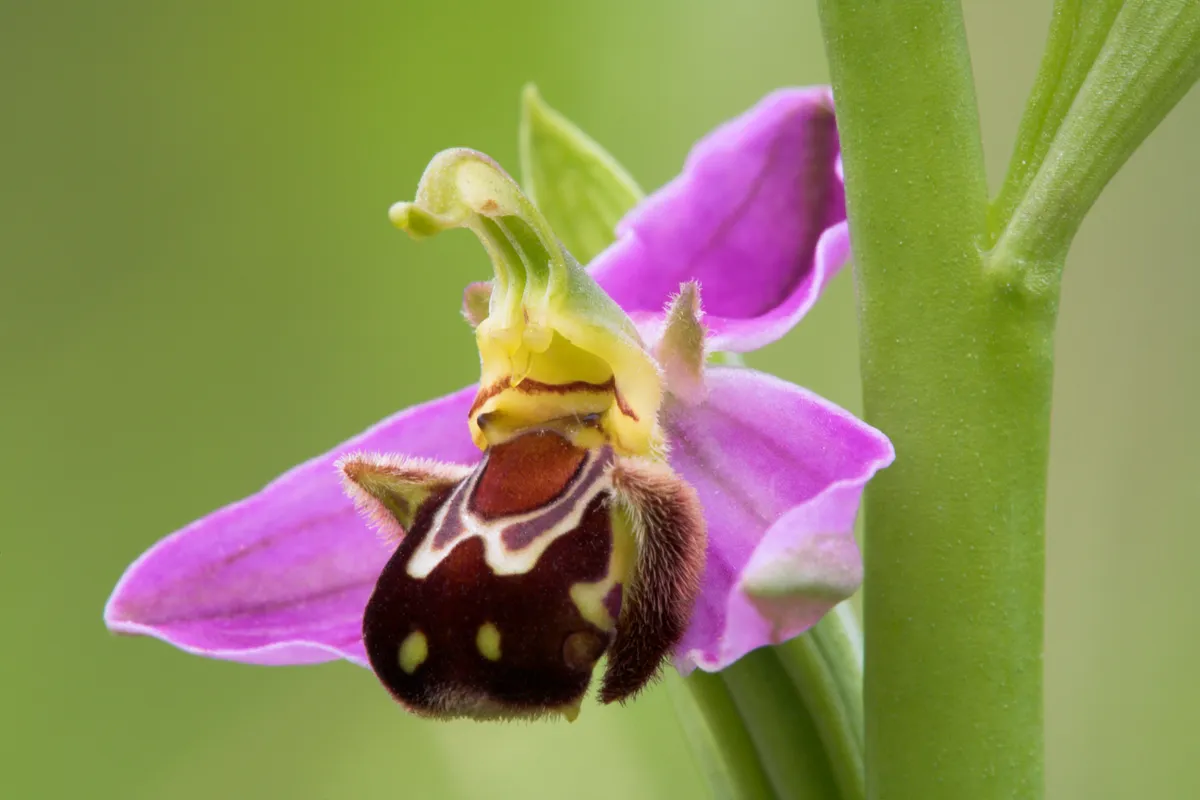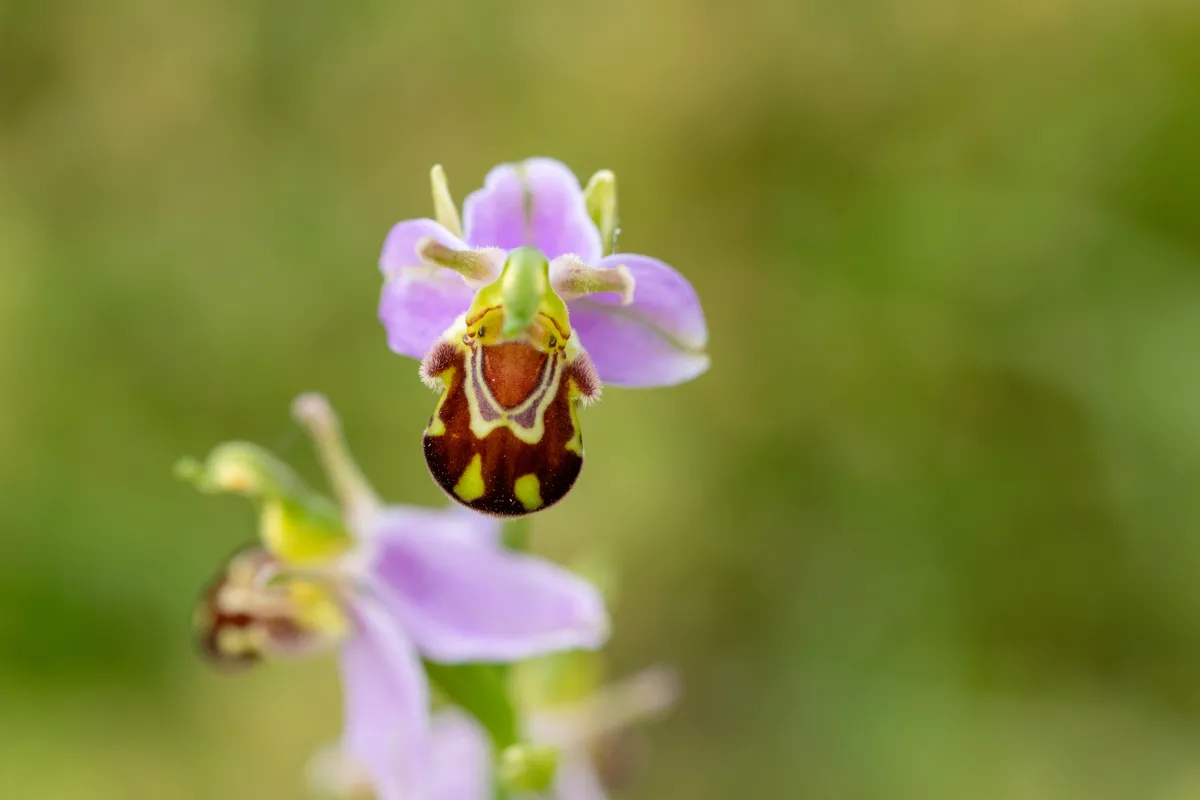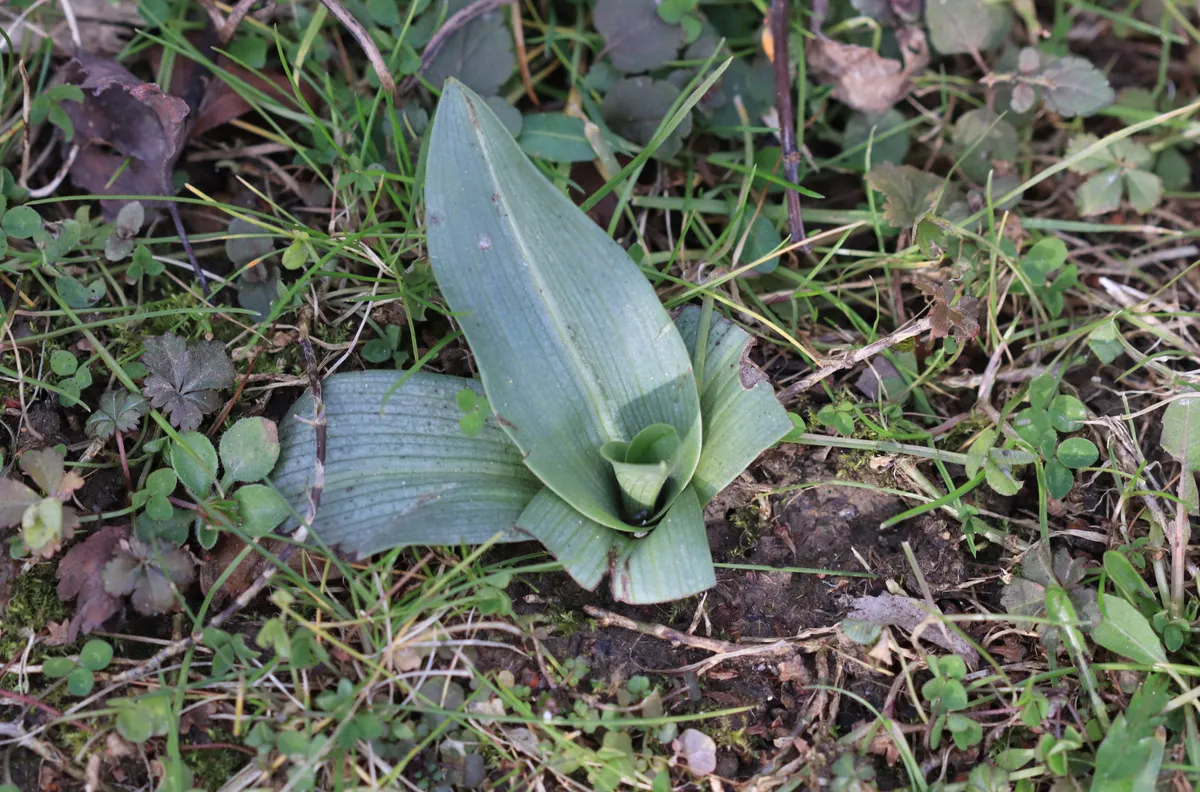Why are you a champion of bee orchids?
I’ve always loved bee orchids. We’ve got a place on the Isle of Wight and just along the north coast from where we are there’s a garden with a lawn that is full of them. I pop along every year to have a look. When we moved into our second home on the island I discovered I had one or two in my own back garden and I started cherishing those.
You can take anybody to see ‘nature’s greatest mimic’ – whether they are into flowers or not – because it’s full of wow factor. The bee orchid looks like a bee to attract pollinators, but in Britain they are self-pollinating so the deception is not required. The fact that the plant is also so rare and unusual adds to its appeal.

When did you first encounter the bee orchid?
I’ve lived in Hampshire for 30-odd years now, which has chalk downland flora. Many years ago, I found a bee orchid while on a walk there. Coming across a plant like that was a moment of joy – it’s a real gem. I grew up in Yorkshire where we didn’t see any, particularly on Ilkley Moor where you find mainly heather, bracken and bilberries.
What are ideal bee orchid conditions?
The Isle of Wight’s soil is very clay-based and has a shallow top soil but it is also slightly alkaline. Bee orchids are fickle and temperamental and a garden may have 150 one year and two the next. You can’t rely on bee orchids to come up but you hope that your piece of turf is in reasonable order and that more are on the way.
The areas where bee orchids grow can become overdeveloped, over-cultivated or over fertilised, so we’ve just got to try and keep the status quo.

When is the best time to see them?
May or June is the best time to spot bee orchids in full flower in my area – although our expert would say June to July further north – but you can see the rosette develop over the winter. Pay attention to the leaves forming among the grass and keep an eye out as the stem and centre emerges.

How can we get children to learn about wildflowers?
I’m always trying to get the public interested in botany and we need to encourage more children to know and love wildflowers. Plantlife’s Great British Wildflower Hunt helps inspire people, especially families, to spot and count wildflowers.
I don’t think we need to worry about children picking common flowers like buttercups, daisies and dandelions if it helps them to engage with nature. I always say, “If you only see one of a flower, then don’t pick it.” At the age of eight I won a prize for dried and pressed flowers.
What shall do if I have bee orchids in my garden?
If you are lucky enough to have bee orchids growing in your garden, try and keep the area where the flowers emerge as it is and stick to your regular gardening routine. If it is a piece of grass that you mow now and again – or that you don’t mow – don’t do anything differently. Bee orchids come and go so there is no guarantee that they will keep growing. But if you have them, enjoy this fascinating species.
Alan Titchmarsh is a gardener and a television presenter. His poems are included in The Glorious Garden in Poetry and Music CD (£10.99)
The expert view
The bee orchid is surely the nation's favourite orchid. The sculpted architecture and vibrant colour of its flowers have a striking beauty, and an eccentric, 'sci-fi' quality that has captured the popular imagination.
With a dust-like seed that is carried on the wind, its flower spikes can appear suddenly, as if from outer space, often in public places. They become mini-celebrities and then vanish as suddenly as they arrived.
Jo Costley is a natures reserves manager at Plantlife